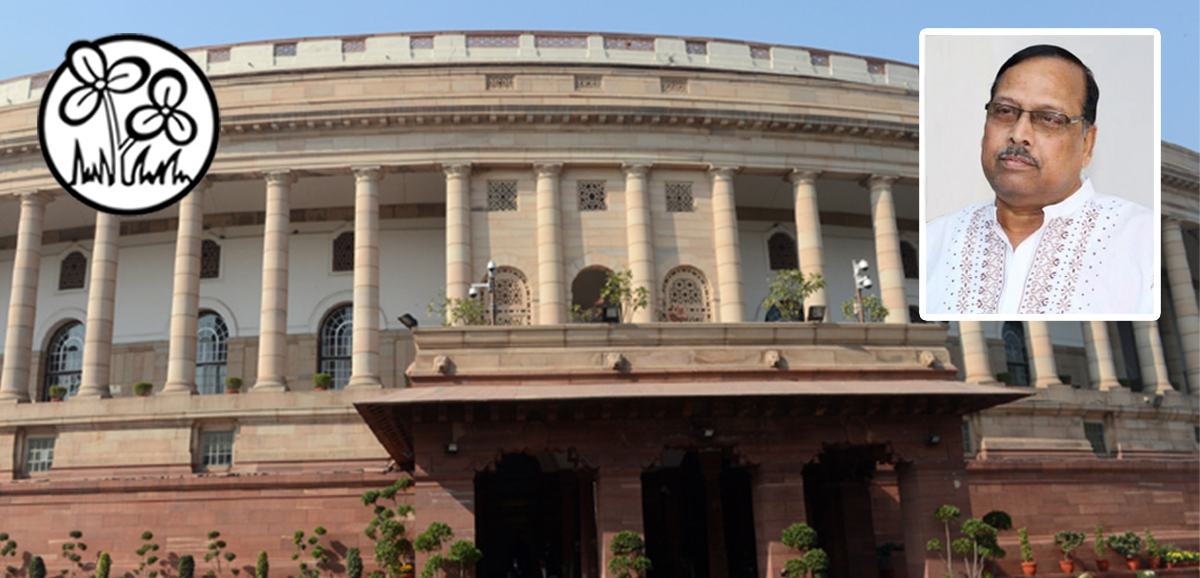February 10, 2021
Sukhendu Sekhar Ray speaks on The Major Port Authorities Bill, 2020

FULL TRANSCRIPT
Dhanyavad mahoday.
Over the past few years this government is vigorously pursuing disinvestment, corporatisation and privatisation of the government trust, which are the public sector undertakings including banks and insurance companies. This Bill seeks to replace the Major Port Trusts Act of 1963 with a Major Port Authorities Act as a part of so-called structural reform. By adopting this strategy, this government has essentially become a seller’s government . It has adopted a policy of selling all public sector undertakings and public properties the nation has today.
The government is following the same policy in the matter of this Bill too. It is nothing but a reflection of the Singapore model. Singapore did the same thing. When there was a hue and cry that there cannot be privatisation of the ports, it adopted a policy called corporatisation. But ultimately it privatised the ports.
So, this is the first step—corporatisation. And the next is privatisation. Therefore, the Bill is an eyewash; Parliament has been taken for a ride. Although, as already mentioned by the Honourable Member of the Congress party, Satya Singh ji, certain recommendations were made by the Standing Committee, they were not considered while drafting this Bill, I am sorry to say. They should not have considered.
The interests of the State governments where the ports are situated have also been compromised and this is detrimental to the interests of the state government. How? I am giving one example. Thousands of acres of land were handed over by the concerned state governments for the building of these ports and now the state government authorities have no say in the matter of any change in land use or sale of land. There are various provisions but I don’t have time to go through them clause by clause, otherwise I would have established how the powers of the State governments and the interests of the State governments have been compromised. Now, any kind of construction can be made on those lands—supermarkets, malls, anything—because the PPP model has come into effect through this Bill. What is this PPP? I can show what has been done but there is no time.
So, the State governments have no say in the future use and sale of such lands. If we go through Section 22 Sub-section 2 proviso ii and Section 22 Sub-section 3, we will find that the new port authorities will be swayambhu, or self-created authorities to the exclusion of state government authorities. There is a Bengali proverb which says ‘Porer Dhone Poddari’. If the land has been given to State governments like Bengal, Odisha, Tamil Nadu and other states and the Centre is now earning by the sweat of others’ brow, why should the land not be given back to the State governments? Or, if the land is sold, then on a pro rata basis, a share of the sales prices should come to the kitty of the State governments.
Sir, what were the recommendations of the Parliamentary Standing Committee? I would like to quote two lines with your kind permission: “Retaining Section 111 of the original Act in the new Bill may be intentional, to use it at the appropriate time by the government, and may endanger the very interest of the major ports, particularly when the ongoing policy of privatisation is aggressively pursued by the central Government as per panel report of 2017. … There are some clauses which give the impression that the proposed Bill provides the government more teeth to allow private players in the port sector, which may, in future, take full control of the port activities. The Committee recommends that the Ministry in the first instance should remove the fears of the stakeholders on the issue of privatisation of ports and ensure that the administrative, managerial and financial control of the port will remain with the port management.” But here (in the case of the new Bill), the PPP model will function.
Last few words. Here is what our Honourable Finance Minister said in her Budget speech, on page 13 paragraph 64, “Major ports will be moving from managing their operational service on their own to a model where a private partner will manage it for them.”
Therefore, Sir, the apprehension of the Standing Committee is writ large in the Budget speech of the Honourable Finance Minister. Therefore, on behalf of All India Trinamool Congress, I strongly oppose this Bill.
